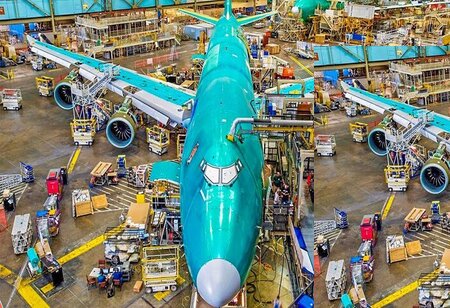
On January 12, the Federal Aviation Administration (FAA) unveiled a series of measures aimed at strengthening its supervision of Boeing's production and manufacturing processes. This includes initiating an audit of the production line and suppliers, a response to a recent mid-air incident where a Boeing 737-9 MAX experienced a panel blowout on January 5. The FAA emphasizes that these actions align with its commitment to upholding the highest safety standards in aviation.
Concerns surrounding the safety of Boeing's 737-9 MAX aircraft prompted the FAA to take swift action, resulting in the grounding of approximately 171 aircraft. The move follows an incident involving an Alaska Airlines flight, which, after just eight weeks in service, encountered the loss of a passenger door plug at 16,000 feet during a flight from Portland, Oregon. The pilots safely returned the aircraft to Portland, with only minor injuries reported among passengers.
The FAA's actions on January 12 include an audit of the production line and suppliers, evaluating their compliance with approved quality procedures. Depending on the audit results, additional assessments may be conducted. Heightened monitoring of in-service events for the Boeing 737-9 MAX will also be implemented. The FAA aims to assess safety risks related to delegated authority and quality oversight, with a potential consideration of transferring these functions to independent third-party entities.
FAA Administrator Mike Whitaker stated, "It is time to re-examine the delegation of authority and assess any associated safety risks." The grounding of the 737-9 and identified production-related issues necessitate a comprehensive risk reduction approach. The FAA is exploring the possibility of employing an independent third party to oversee Boeing's inspections and quality system.
Earlier, on January 11, the FAA initiated an investigation into whether Boeing overlooked its obligation to ensure that finished products adhered to approved designs and maintained a state conducive to safe operation in accordance with FAA regulations. The Alaska Airlines incident prompted the investigation, with the FAA emphasizing that such events "should have never happened and cannot happen again."
On January 8, both Alaska and United Airlines reported discovering loose parts during preliminary checks on multiple grounded aircraft, raising additional concerns about Boeing's manufacturing processes. Consequently, hundreds of flights have been canceled by the two carriers since then, further highlighting the urgency for a comprehensive assessment of Boeing's production practices.

